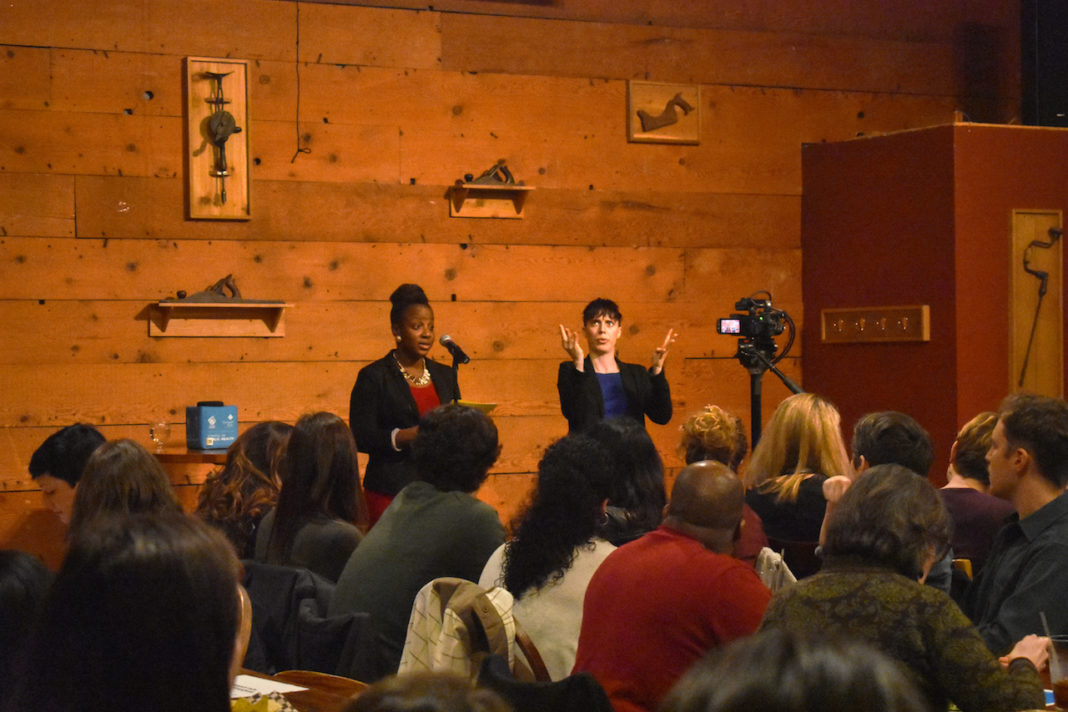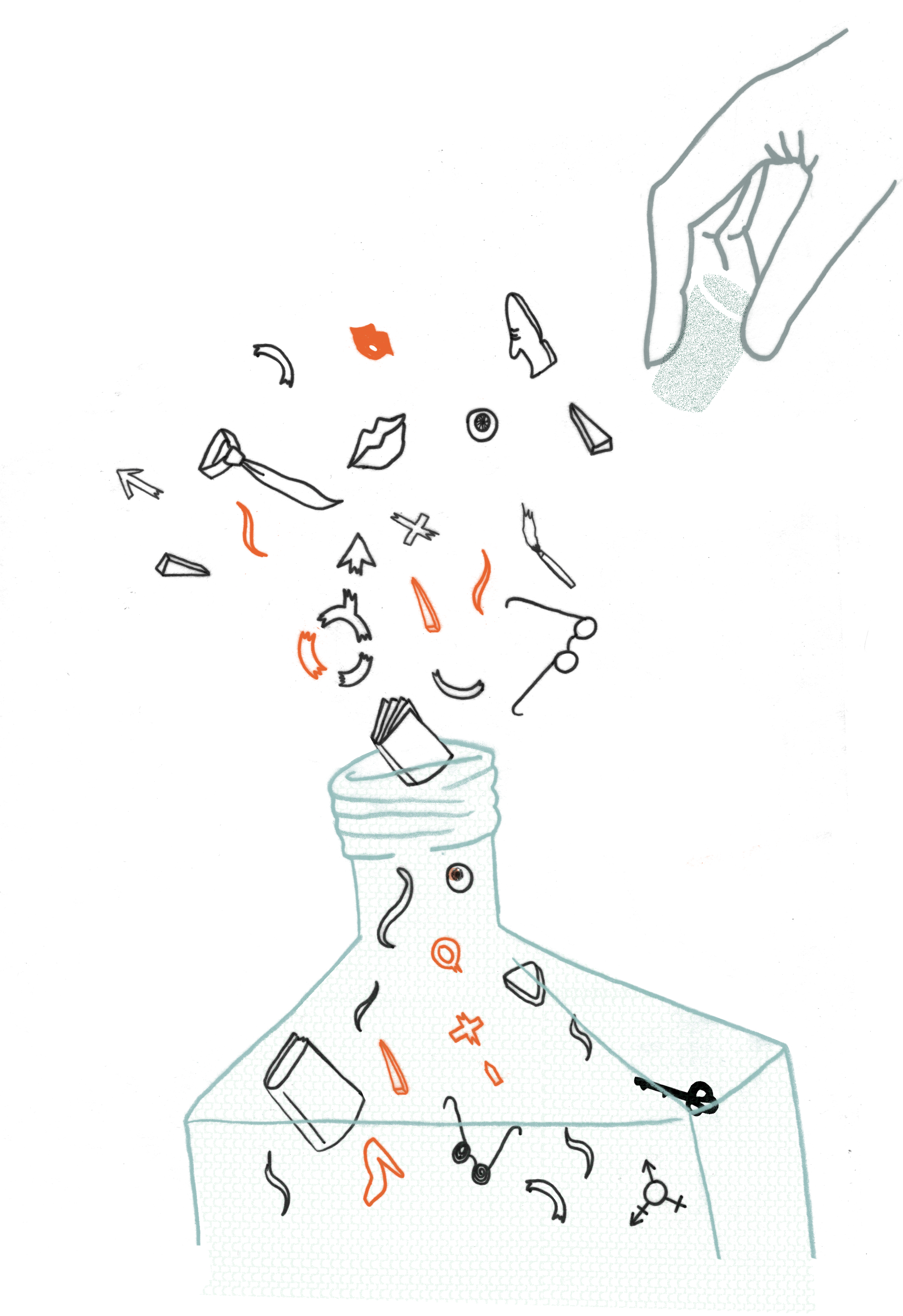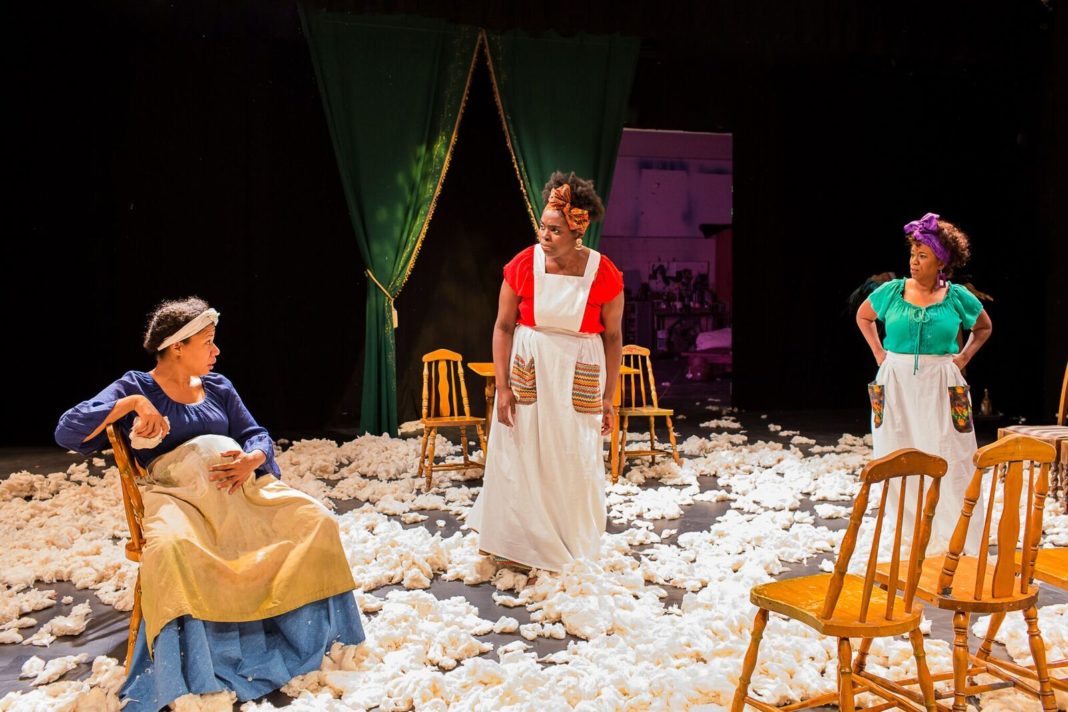Students and faculty of Portland State and Oregon Health and Sciences University School of Public Health along with community members, attended an open discussion about racism and public health at the Lucky Labrador Beer Hall on Thursday, Feb. 15.
The event—part of the SPH’s Public Health PDX series—was held in a beer hall to bring attention to the association of alcohol with acts of racial violence and the deliberate placement of alcohol within communities of color. However, organizers asked attendees not to drink during the discussion and instead listen to the discussion or share their experiences with racism and structural influences against people of color in public health.
“There is not enough racial diversity in health care settings,” said guest speaker and Deputy Refugee Health Coordinator at the Multnomah County Health Department Charlene McGee. “Therefore it’s unlikely to be treated by anyone who looks like you. The inequalities in our healthcare system is a health care crisis.”
When McGee was preparing to give birth in 2008, she felt alone in the hospital. No one around her looked like her, nor did they seem to have gone through any of the same experiences she did.
“I self identity as a Liberian-Oregonian,” McGee said. “My identity is intersectional. I’m an immigrant. I’m Black, a naturalized U.S. citizen, a mother, more recently a wife and a public health professional.”
McGee added that she has come to embrace Portland despite its reputation as the whitest city of its size, but she believes even saying that is problematic. “Every time that’s said, it dismisses the fact that in Portland we have 13.7 percent of our residents who are foreign born, and 28.5 percent of our residents are people of color,” McGee said. “We have to recognize the changing diversity of the city and state that we love.”
Thomas Aschenbrener, retired founder and president of the advocacy group Northwest Health Foundation, who has been involved in community funding for over 40 years, said he started this foundation to get people to start thinking more about systematic causes of common health problems.
Aschenbrener said, “We know there are certain laws and regulations that are causing people to be ill.” He added, “We know there are social barriers that racism doesn’t allow you to overcome. So we were addressing those concerns at policy level.”
Most of the attendees appeared white or white passing. Aschenbrener said the fact that white attendees showed up was important in a white liberal city like Portland.
“When we come together to have a discussion about race, white people don’t show up,” Aschenbrener said. “I think something like this is very important because this is a town filled with very well meaning white people who don’t want to have the conversations.”
“I think what we’re doing tonight is creating a space where we can sit in the discomfort,” said PSU Assistant Professor Dr. Kelly Gonzales. “[We] understand that we have more work to do and know it’s up to us to be brave and courageous enough to seek equity through truth and understand that we are here tonight to start or continue our journey toward healing.”
After hearing some of the specific issues Aschenbrener and McGee brought up, Aidan Padilla, a post-bac public health student, said, “After taking one of Dr. Kelly Gonzales’ classes I have a lot more information about [inequity in public health] and I’m still constantly looking for ways to support and to work towards healthier communities for everybody.”






